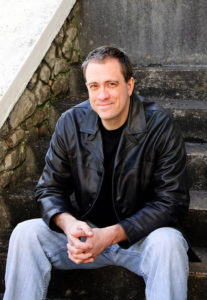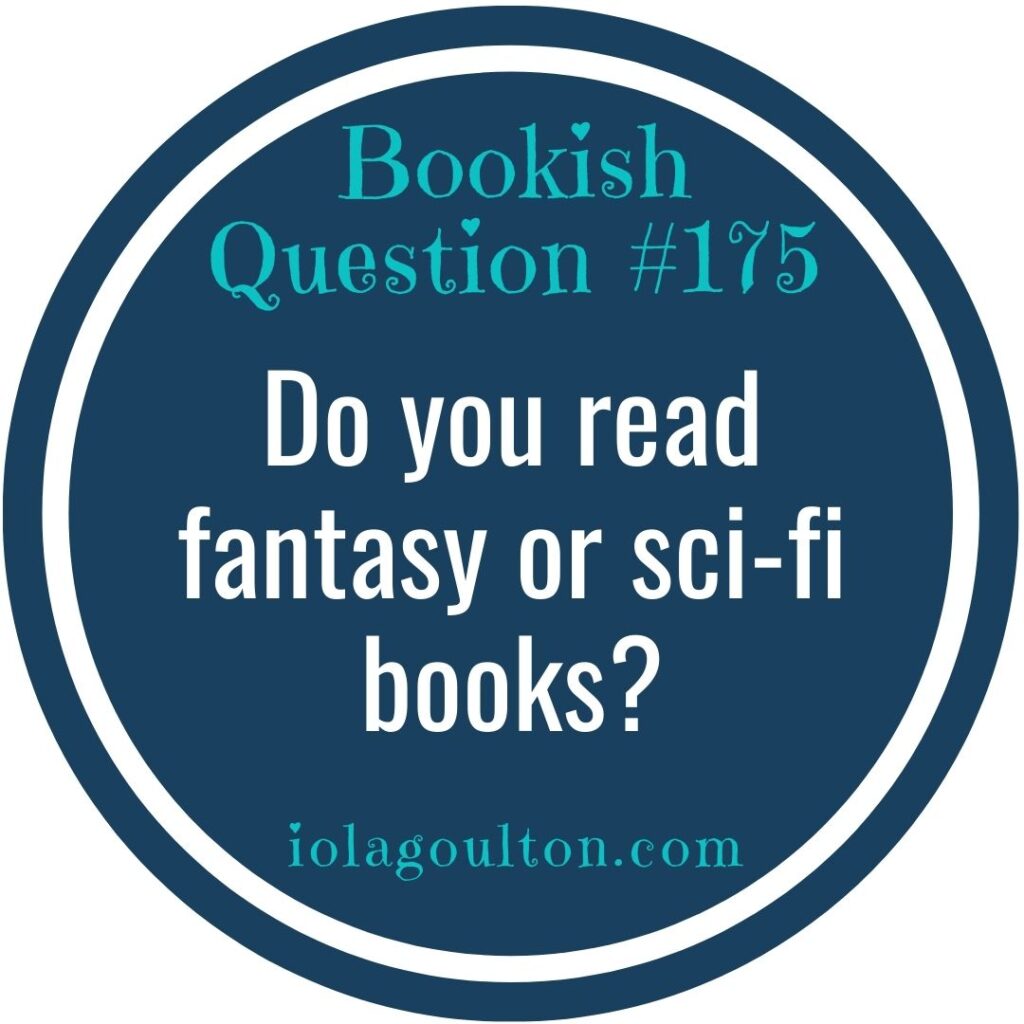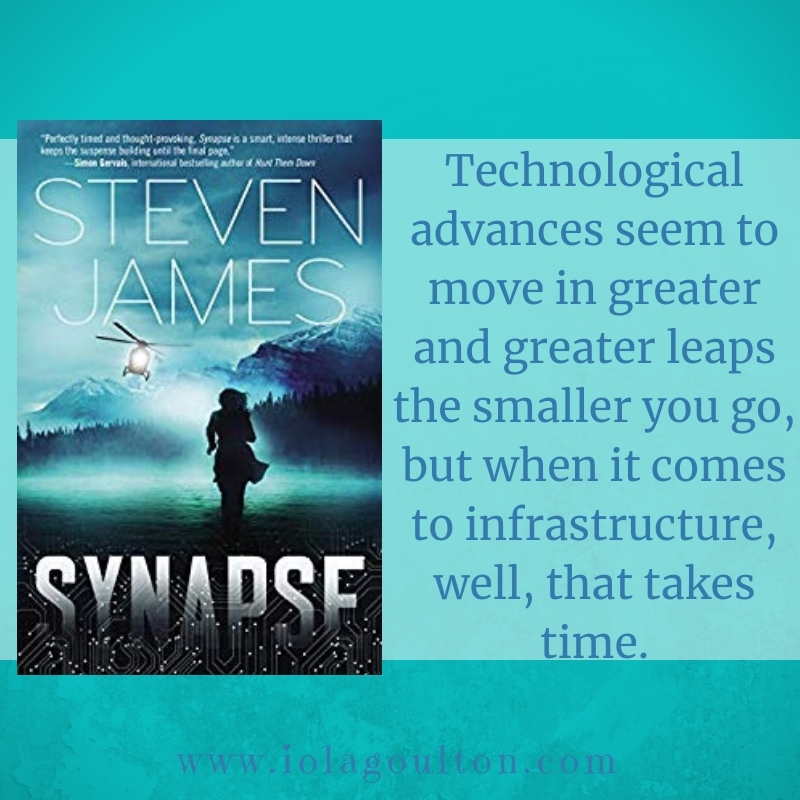Synapse is a difficult novel to review. Parts were excellent. Parts were not excellent. And parts were downright weird.
Let’s start with what I thought was excellent. Synapse is set in the future—2037. Humanoid robots are commonplace, as are the Purists, terrorists who seek to destroy the Artificials before Artificials destroy humanity (a valid concern for anyone who has seen a Terminator movie).
The main character, Kestrel, is a Methodist minister, and that gives lots of room to muse in the nature of humanity, whether a sentient robot has a soul or can believe in God or needs forgiveness for their sins.
There are some big questions around artificial life forms at this level, and Synapse addresses them all in a natural way.
But that’s not the plot. The basic plot is more mundane—there’s a bombing, our heroine is one of the first on the scene, and that naturally brings her to the attention of the investigating officers. Predictably, one is single (well, divorced) and interested in her (but has to get past his own issues first), and the other is a dirty cop. Yawn. Sorry, but that’s one plot line I’m kind of over.
So the underlying novel is the search for the truth about the bombing, and will the good cop find out the truth before the bad cop destroys all the evidence and implicates Kestrel. I’m not sure if it was intentional, but I found the bad cop a little cliché, and the writing in those scenes somewhat bland.
Then there’s Kestrel.
She’s in mourning, as she’s just lost her baby in childbirth. And that’s where the book gets weird. It starts in second person as Kestrel gives birth and realises her baby is not okay. Honestly, I almost stopped reading there—using “you” (meaning me, the reader) would have been weird in any context, but in the context of a mother losing her baby? Beyond weird.
The other weird thing was around Jordan, Kestrel’s Artificial (aka sentient humanoid robot). Jordan’s scenes were written in first person present tense, and that was somewhat jarring next to the rest of the novel. But it was interesting to see Jordan’s point of view, limited as it was.
Overall, Synapse is a futuristic whodunit that uses enough common tropes to make it familiar despite the futuristic setting. While I didn’t wholeheartedly enjoy Synapse, it was a fascinating concept that asked some serious questions about the nature of God, humanity, and salvation.
Recommended for science fiction fans.
Thanks to Thomas Nelson and NetGalley for providing a free ebook for review.
About Steven James
 Steven James is the critically acclaimed, national bestselling author of sixteen novels.
Steven James is the critically acclaimed, national bestselling author of sixteen novels.
His work has been optioned by ABC Studios and praised by Publishers Weekly, Library Journal, the New York Journal of Books, and many others. His pulse-pounding, award-winning thrillers are known for their intricate storylines and insightful explorations of good and evil.
When he’s not working on his next book, he’s either teaching master classes on writing throughout the country, trail running, or sneaking off to catch a matinee.
Find Steven James online at:
Website | Facebook | Twitter
About Synapse
Thirty years in the future, when AI is so advanced that humans live side by side with cognizant robots called Artificials, Kestrel Hathaway must come to terms not just with what machines know, but with what they believe.
 Soon after experiencing a personal tragedy, Kestrel witnesses a terrorist attack and is drawn into a world of conspiracies and lies that she and Jordan, her Artificial, have to untangle. With a second, more brutal attack looming on the horizon, their best chance of stopping it is teaming up with federal counterterrorism agent Nick Vernon. But the clock is ticking—and all the while, Jordan is asking questions Artificials were never meant to ask.
Soon after experiencing a personal tragedy, Kestrel witnesses a terrorist attack and is drawn into a world of conspiracies and lies that she and Jordan, her Artificial, have to untangle. With a second, more brutal attack looming on the horizon, their best chance of stopping it is teaming up with federal counterterrorism agent Nick Vernon. But the clock is ticking—and all the while, Jordan is asking questions Artificials were never meant to ask.
Deftly weaving suspense and intrigue into a rich, resonant tale that explores faith and what it really means to be human, Steven James offers us a glimpse into the future—and into our own hearts.
Synapse is an unforgettable, gripping story of dreams shattered, truth revealed, and hope reborn.
Find Synapse online at:
Amazon | BookBub | ChristianBook | Goodreads | Koorong
Read the introduction to Synapse below:



 Steven James is the critically acclaimed, national bestselling author of sixteen novels.
Steven James is the critically acclaimed, national bestselling author of sixteen novels.
